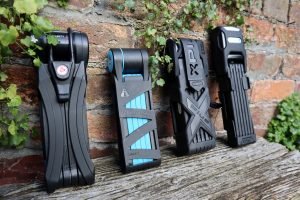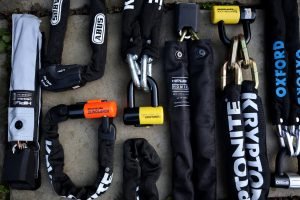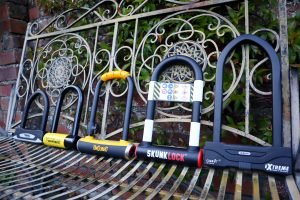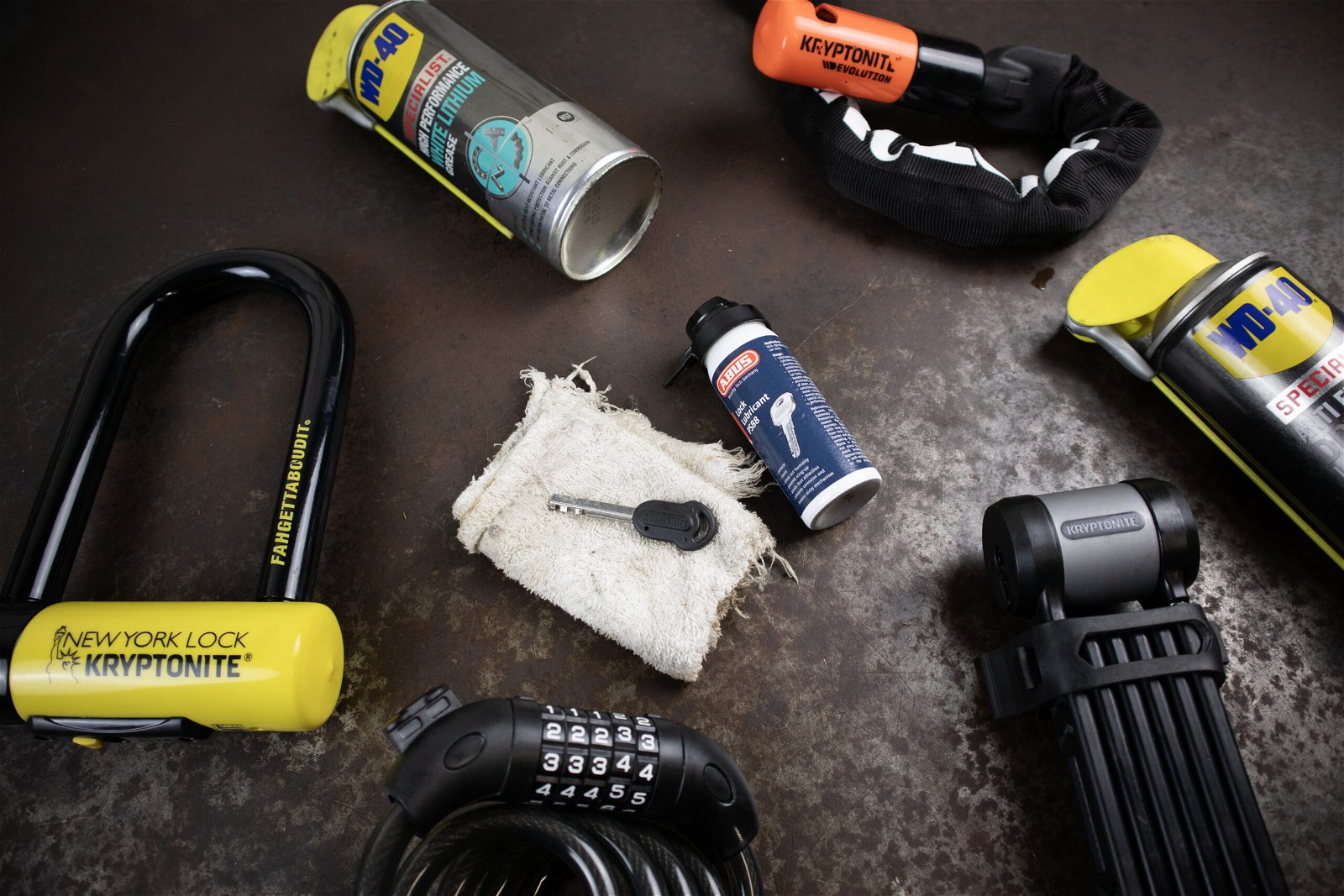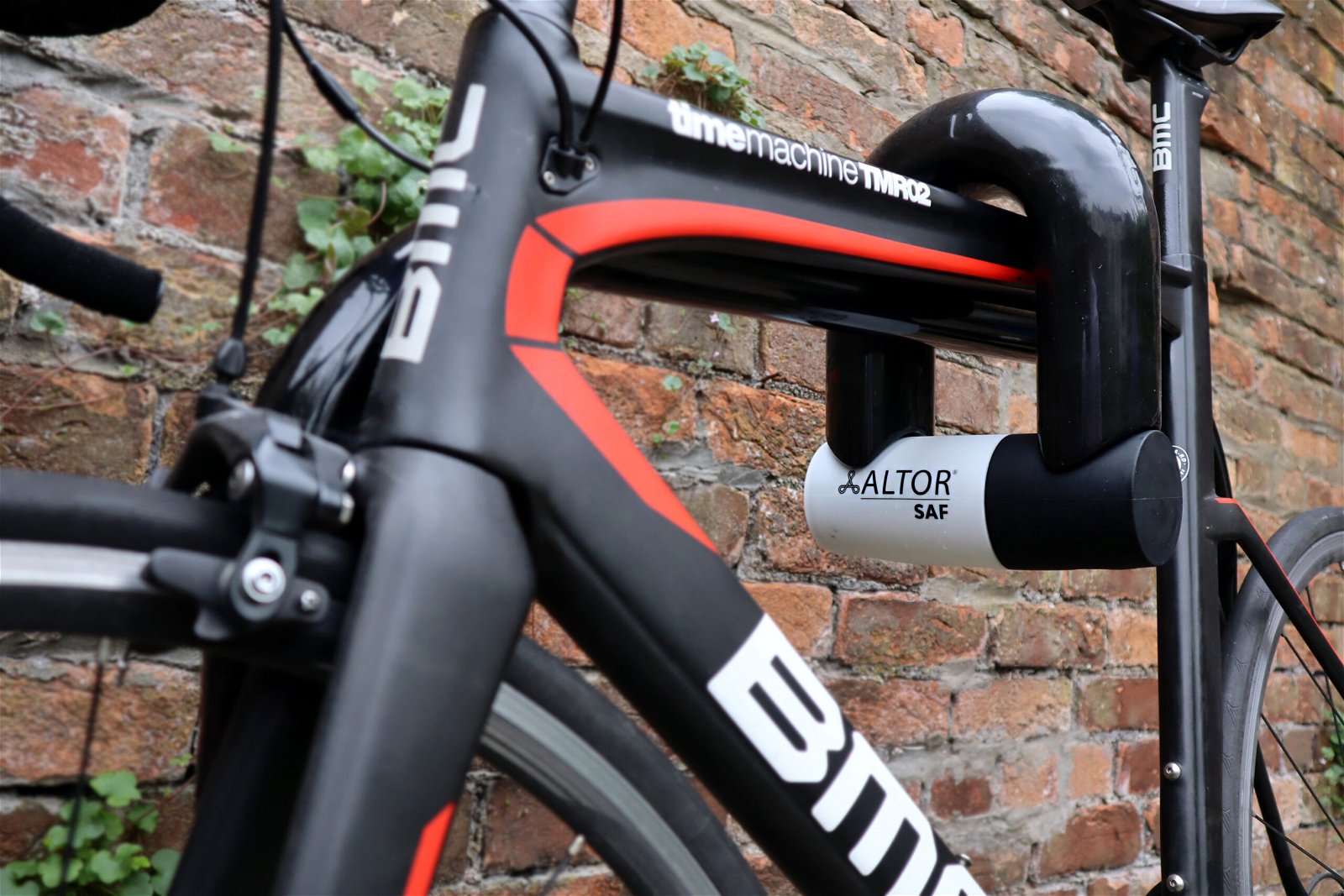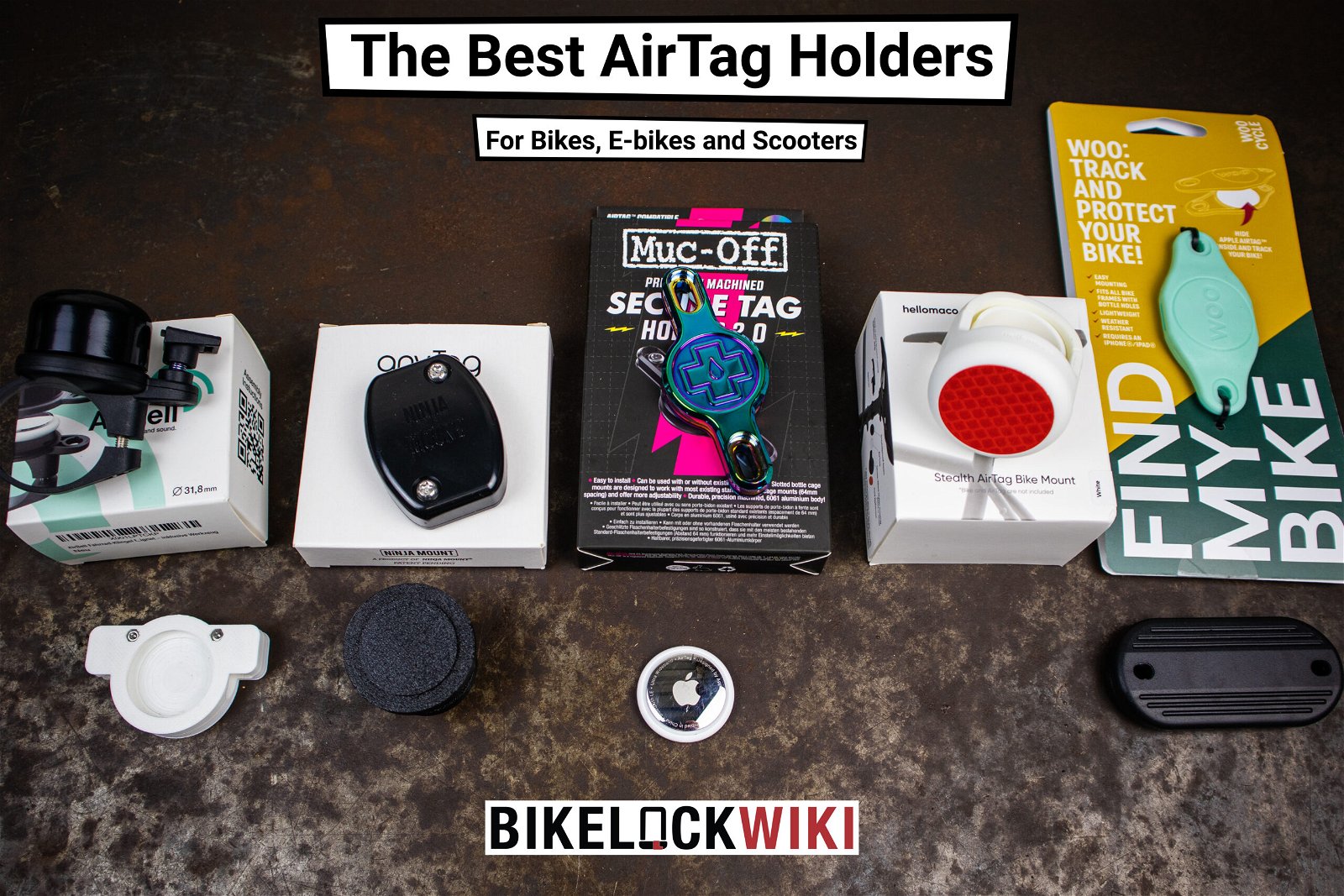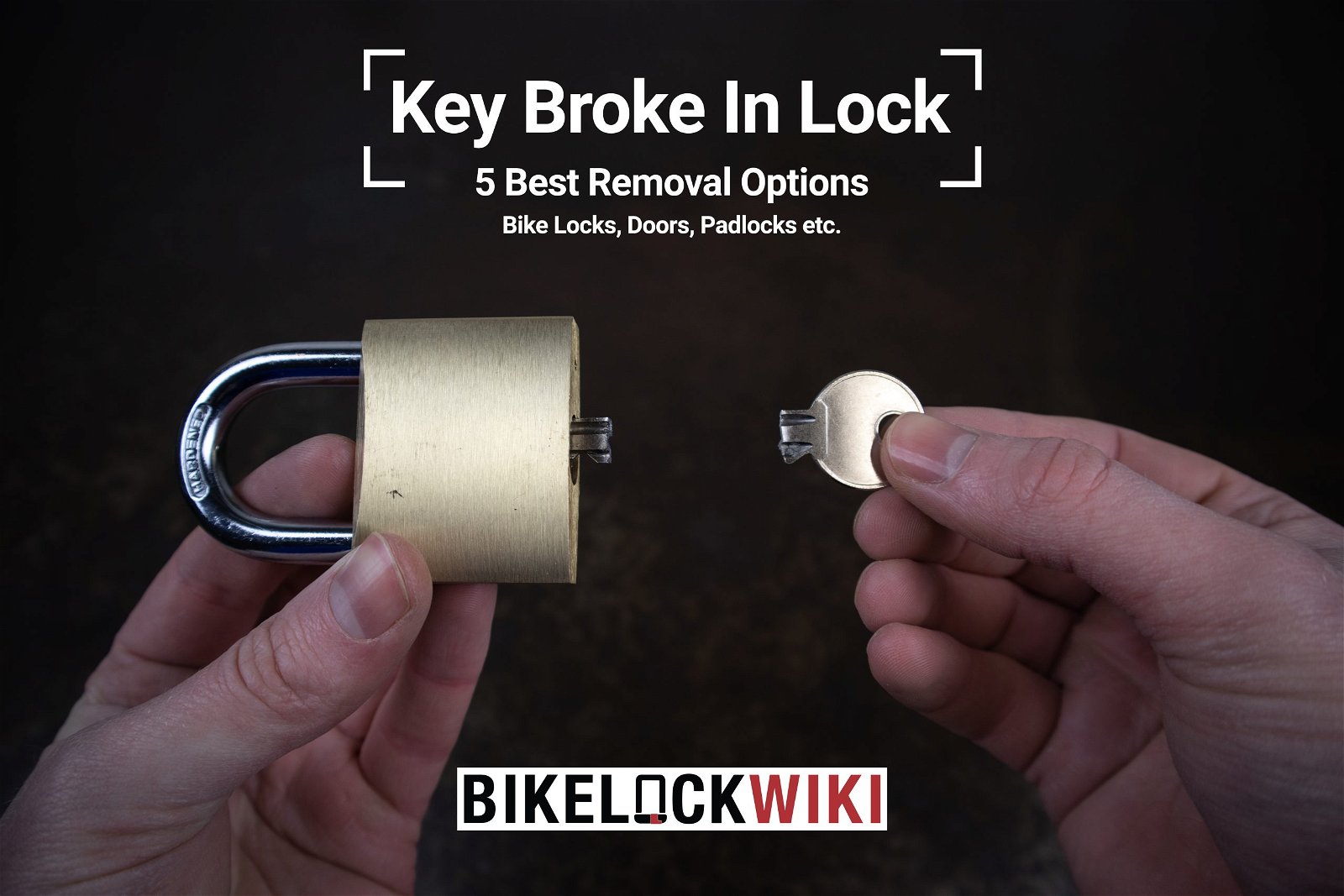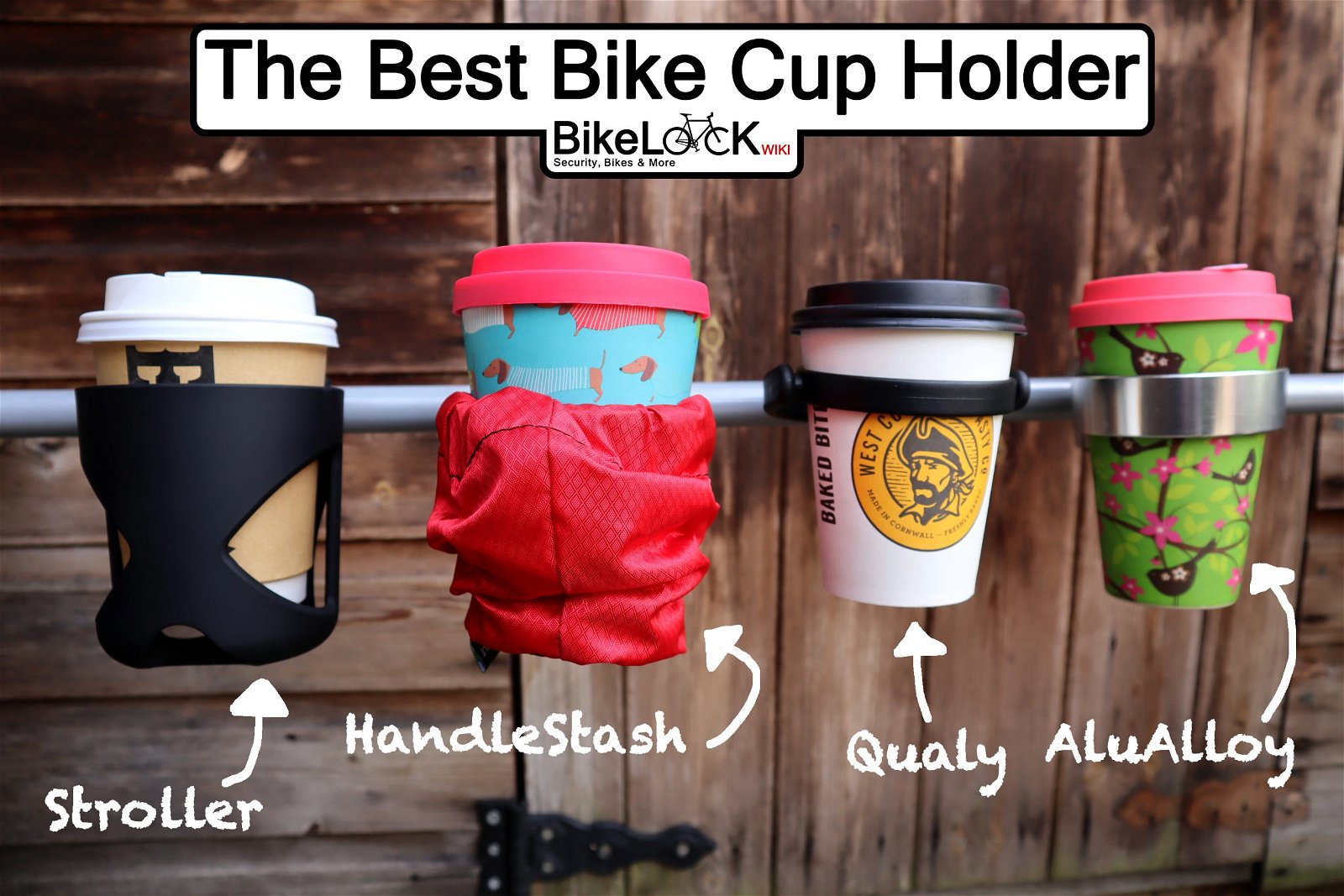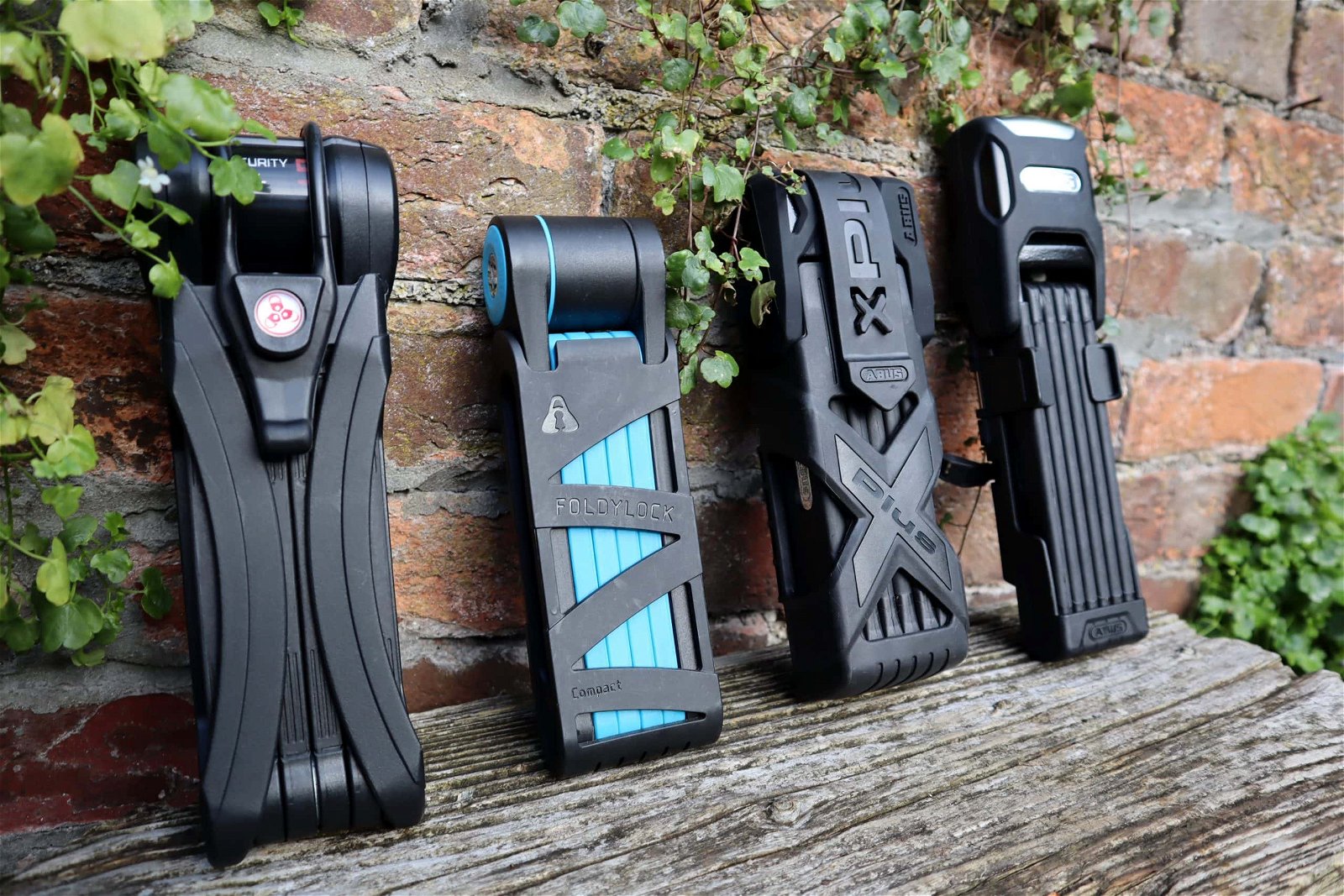- By: James Grear
- Last updated:
No. Bike lock keys are not universal.
However, in a small number of cases, you can open multiple locks from the same brand with the same bike key.
If you’ve lost the keys to your bike lock or want to reduce the number of keys lying around the house, wondering if bike lock keys are universal is a perfectly valid question.
In this short guide, we’ll cover everything you need to know about your bike lock keys, leaving no stone unturned.
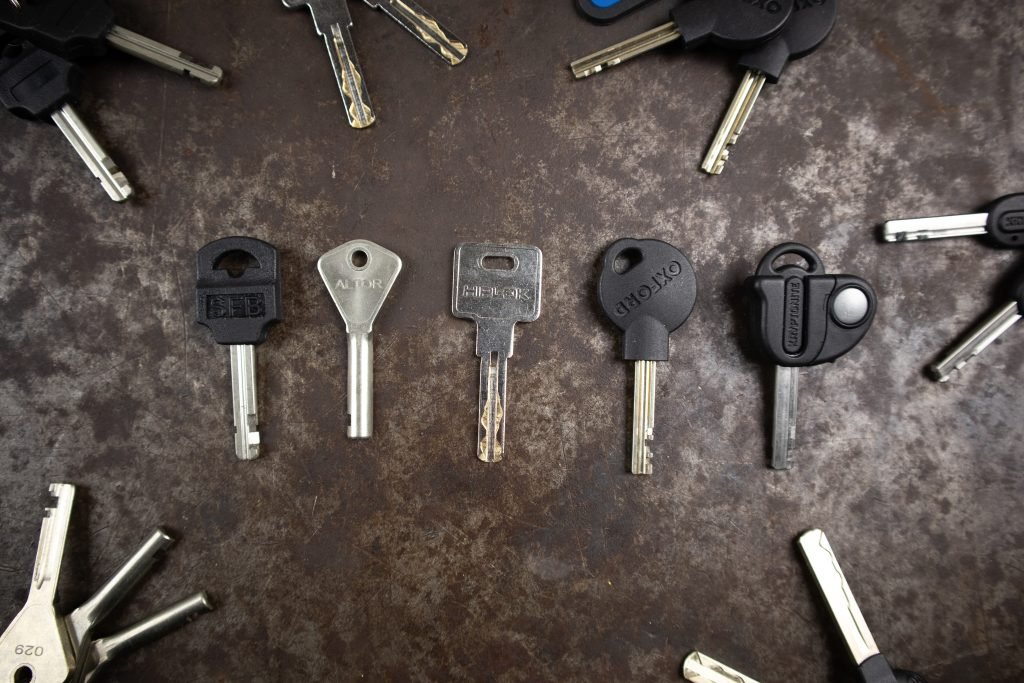
Instances of Universal Bike Lock Keys
As we just mentioned, there are several instances where bike lock keys can be used for different bike locks.
These scenarios don’t play out very often, so if you’ve lost the keys to your bike lock and are hoping to open it with another set of keys, we recommend reading our guide on what to do if you lose your bike lock keys.
Manufacturer Prints Same Keys Twice for Different Locks
The modern-day bike lock is typically fitted with a disc detainer locking cylinder.
Disc detainer cylinders often have over 100,000 key combinations before key patterns are re-printed for new locks.
Otherwise, in some cases, a lock’s cylinder cylinder is altered for the next batch so that duplicate key sets won’t be printed for other locks.
Once a manufacturer has sold the number of locks their locking cylinder has key combinations, they’ll typically begin cycling back through the same key combinations.
Should you be worried about the possibility of someone having the same bike lock keys as you for another lock? Absolutely not.
The probability of another user of the same lock accidentally unlocking your bike lock is so slim that it’s virtually zero.
Most manufacturers sell locks worldwide, so if a key with the same bitting as yours is printed, it’ll probably be sold in another country, city or town.
Additionally, because the chances of a key match are so slim, even if a thief had the same type of key that your bike lock used, they’d never insert it to see if it works.
Instead, they’d go straight to using bolt cutters, angle grinders and other tools to break your lock open.
Keyed Alike Bike Locks
Some bike lock manufacturers allow customers to order multiple locks that use the same locking cylinder.
The advantage of this is that the same key can be used to operate all of your keyed-alike locks.
So, instead of having three different keys for all of your locks, if you ordered your locks keyed alike, you’ll only need to carry one key.
Choosing keyed-alike locks is a great option for families or anyone who locks multiple bikes with the same locks.
The disadvantage of keyed-alike locks is that these locks are made to order and typically take two to four weeks to arrive after being ordered.
The two main companies offering keyed-alike bike locks are ABUS and Hiplok.
Understanding Bike Lock Mechanisms & Cylinders
Whilst disc detainer cylinders are the most common type of cylinder used by bike locks, there are several other cylinders that bike locks can utilise.
- Wafer & tumbler cylinders – typically found on lower-end bike locks and offer less resistance to picking and manipulation
- Slider cylinders – similar to cylinders used by cars and automobiles, found on many bike locks due to their picking difficulty
- Tubular cylinders – the original cylinder of choice for bike U-Locks, now only used by old or very low-security bike locks
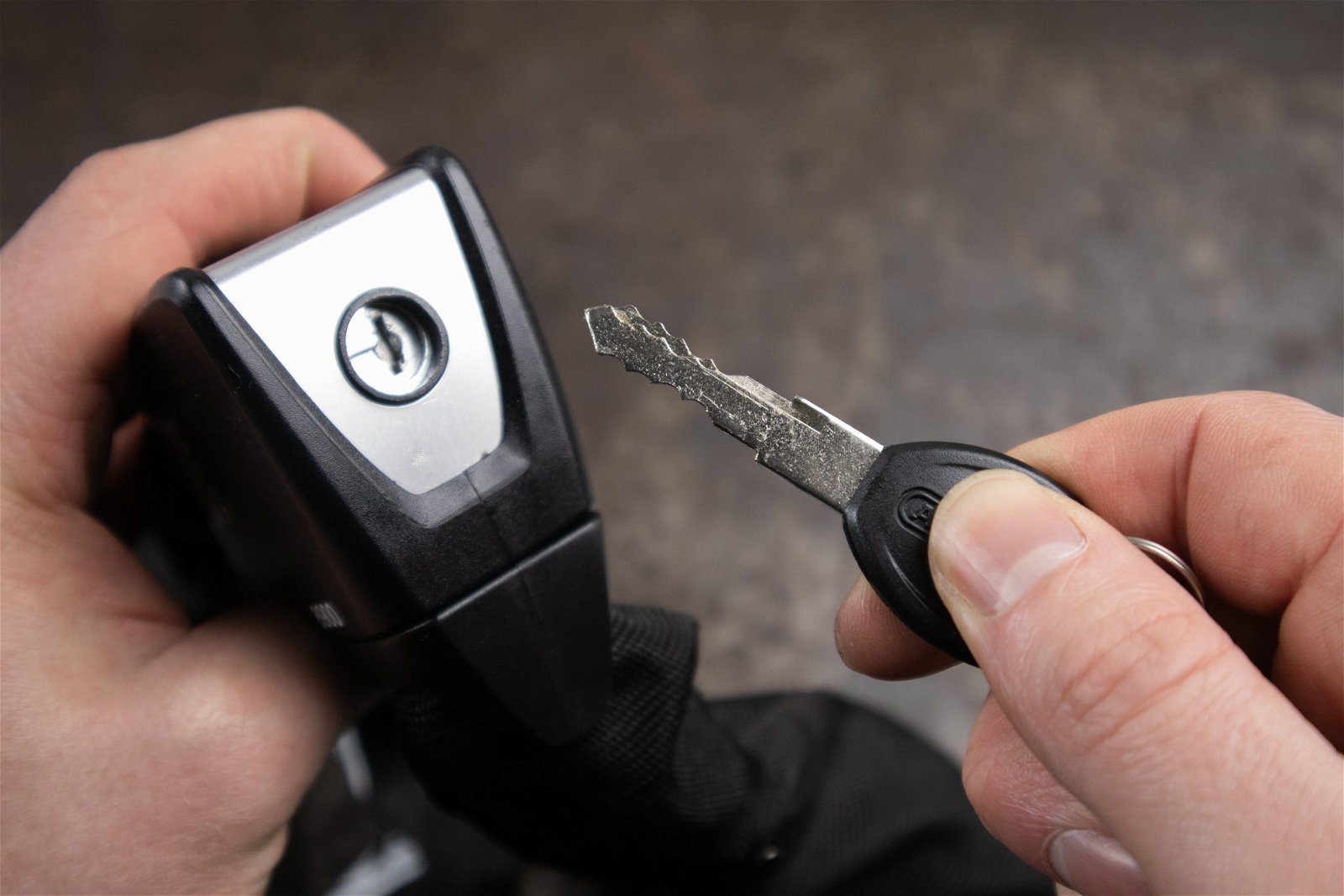
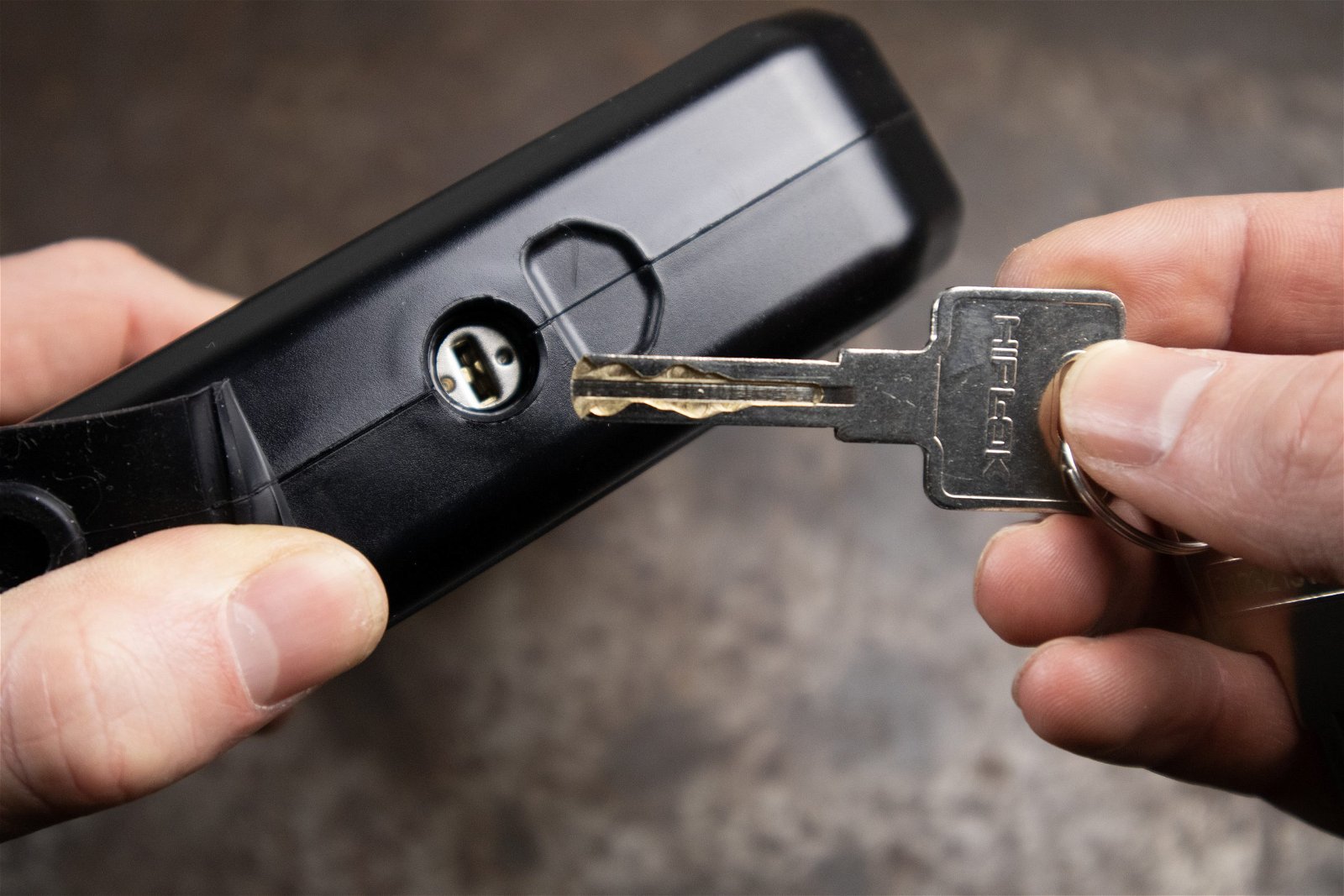
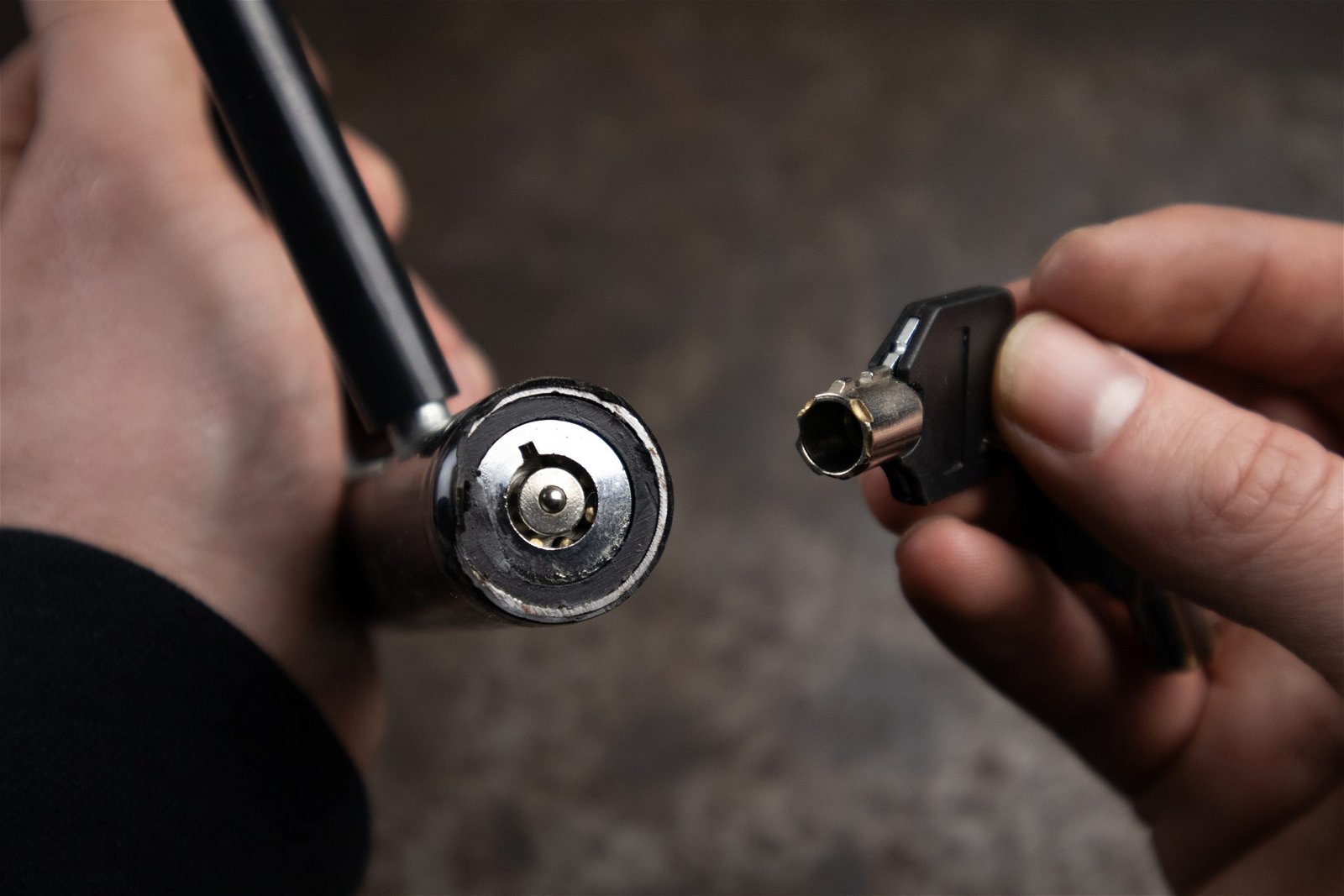
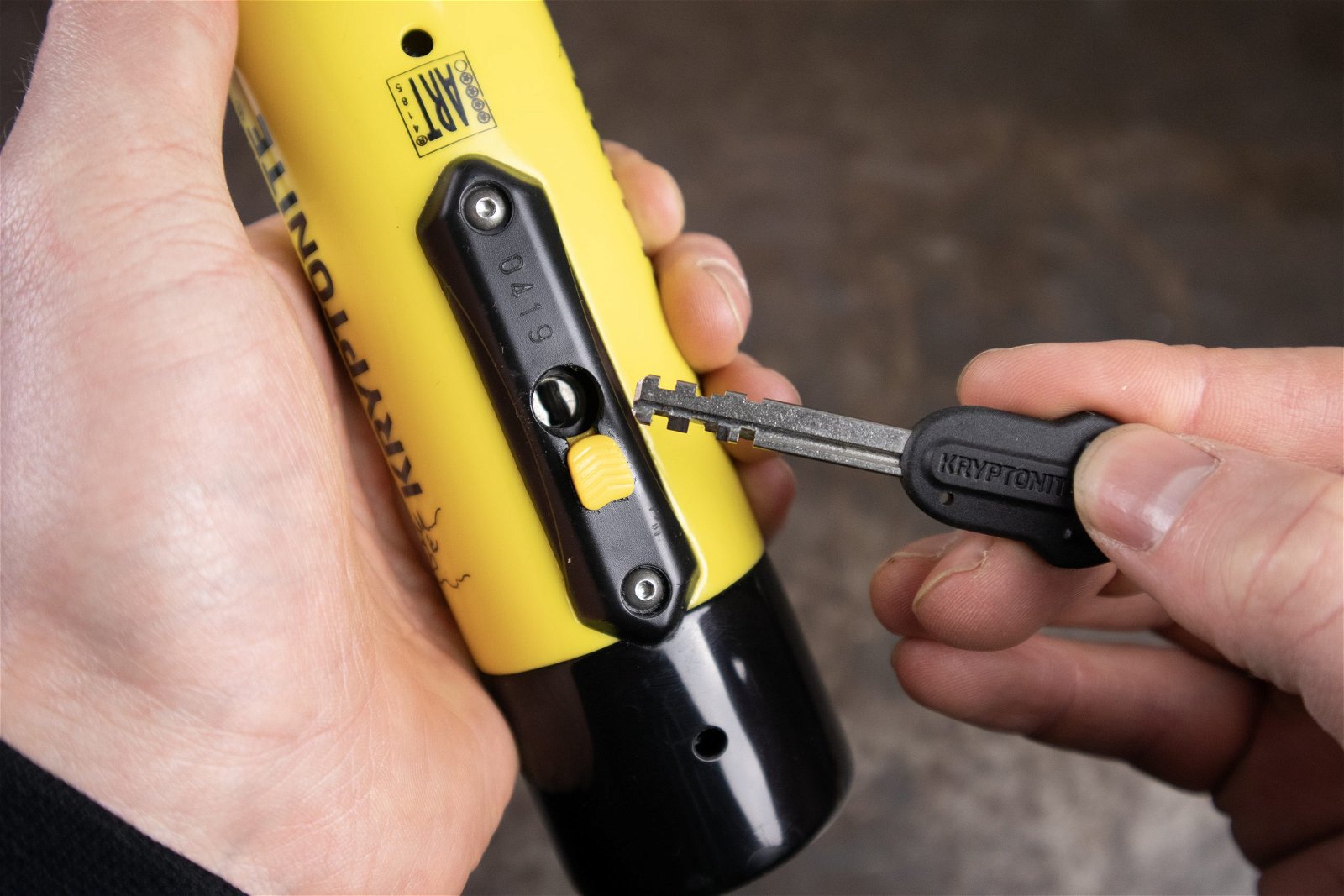
There are several other types of cylinders used by bike locks, such as Abloy cylinders, but these are much less common and tend to be used by locks that offer the highest levels of security.
All of these cylinder types work in different ways and, therefore, require a different style of key.
Wafer cylinders won’t work with a disc detainer key, slider keys won’t work on tubular cylinders, you get the point.
Whilst keys of the same cylinder type can often be inserted into the cylinder of other locks, the bitting on the key won’t match what’s required to open the lock.
Key Diversity Amongst Bike Locks
Security to one side, big brands like Kryptonite and ABUS often alter the warding on their locking cylinders.
This allows them to use the same cylinder again, reducing the number of duplicate keys printed.
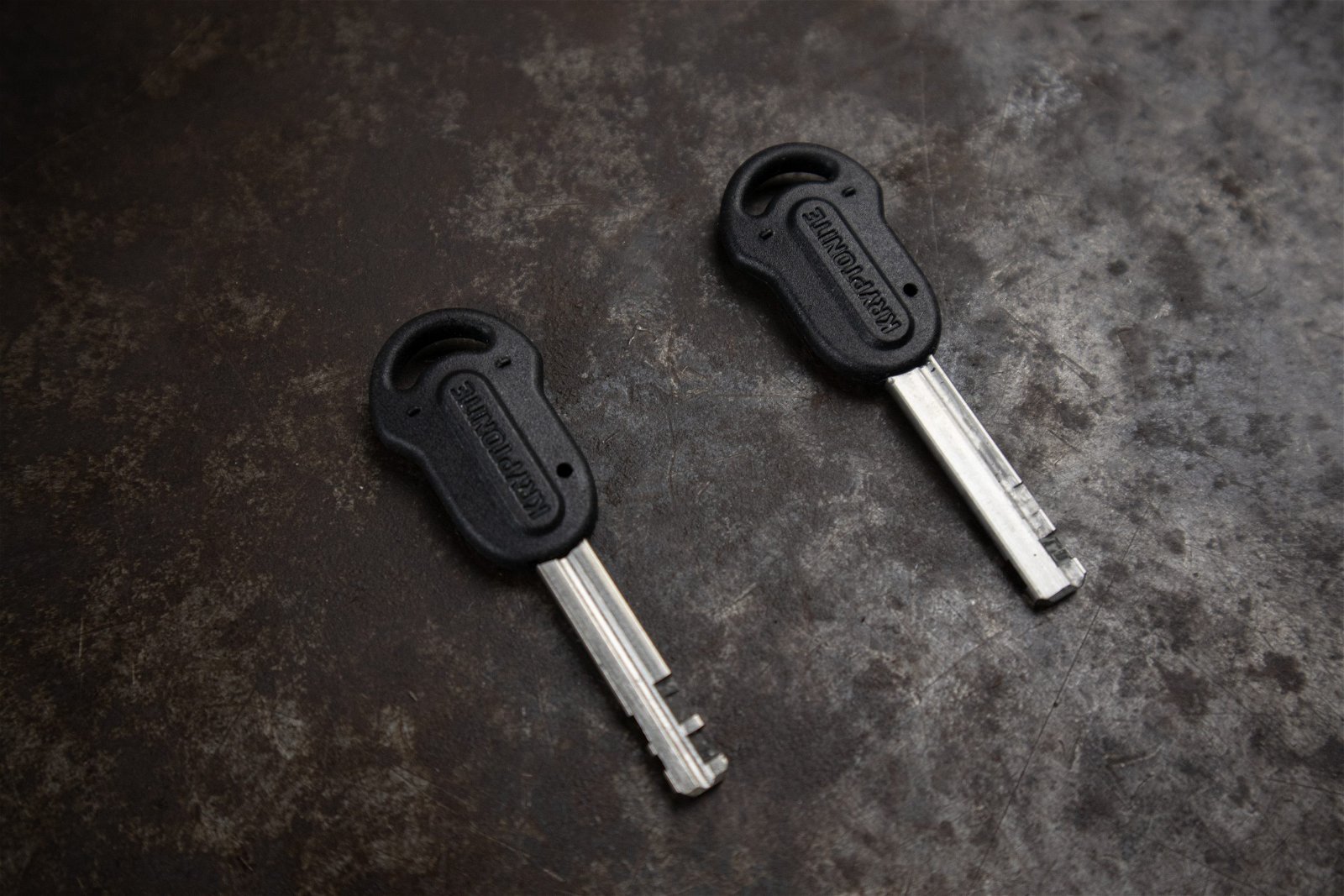
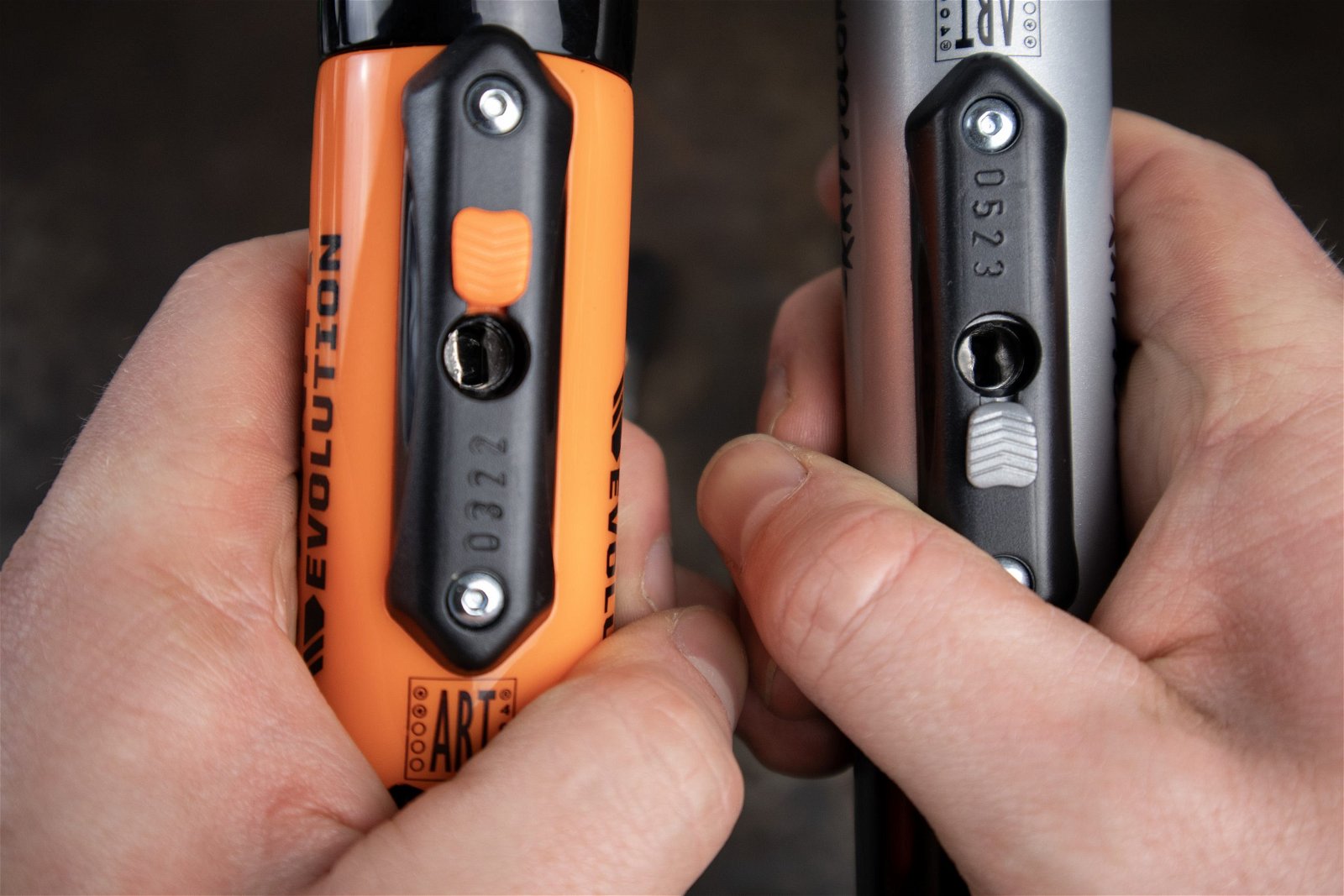
Warding is the shape of a lock’s keyhole opening. Keys that don’t match the warding of the keyhole won’t insert into the cylinder.
Typically, disc detainer bike lock keys will have their warding down the middle of the key. However, by shifting the warding slightly to one side, you create a whole new set of key combinations, even if using the same cylinder.
How Do Keys Actually Work?
Since disc detainer cylinders are the most commonly used cylinder type on bike locks, we’ll explain using these as our example.
Disc detainer cylinders house several discs, which are rotated into position whilst resting on the key’s bitting cuts.
Each disc detainer key has angled bitting cuts along its blade. The angle of each cut changes along the key depending on the position required for the disc’s cutout to align with the locking sidebar.
When the correct key is inserted into the disc detainer locking mechanism and rotated, the key’s bitting causes each disc’s cutouts to align, providing a space for the locking sidebar to fall into.
When the locking sidebar falls into the aligned disc’s cutout, this releases the cylinder, allowing it to be fully rotated.
The video below shows a great example of this in action from the LockPickingLawyer.

A similar story is true for all of the lock types listed above.
When the key is inserted, its bitting contacts a set of sliders or pins inside the mechanism.
These sliders and pins are moved into position as the key is inserted or rotated, allowing the cylinder to fully rotate, unlocking the lock.
Can You Order Replacement Keys For a Bike Lock
If you lose the keys to your bike lock or want to order new copies, you’ll be pleased to know that, in most cases, duplicates can be cut.
Bear in mind that key replacement is not usually possible for unbranded or very cheap bike locks.
However, it’s worth reading our guide on bike lock key replacement, which will talk you through the process, allowing you to get new key copies cut.
Bike Lock & Key FAQs
Are Keys From the Same Bike Lock Brand Universal?
No.
Unless you order locks that are keyed alike, you won’t be able to use another set of keys to open your bike lock, even if they’re of the same brand.
Each set of keys has unique bitting cuts along its blade. Think of these cuts as a password or decoder so that when inserted into the lock, they align the pins, sliders or discs, allowing the locking mechanism to unlock.
As the bitting of each set of keys is unique, different key sets (even from the same brand) won’t provide the right “password” to open your lock.
Do All Bike Lock Brands Use the Same Key Type
As bike locks use varying locking cylinders, different types of keys are required to operate their corresponding cylinders.
Additionally, bicycle security brands typically use multiple locking cylinder types across their portfolio of locks, so one brand’s locks will usually be operated by a range of different key types.
Is There a Bike Lock Master Key?
Whilst master keys can exist for bike locks, these locks would have to be made specifically for master key compatibility.
Cylinders that are master key compatible can be opened by the master key and their unique set of keys.
So unless you’re using a bike lock designed for master key compatibility, there won’t be a master key out there that can open it.
Additionally, bike lock brands and manufacturers do not have master keys that can open the locks they produce, as this would pose a massive threat to the security of their products if a thief figured out how the master key worked.
Bike Lock Key No Longer Working
If the key to your bike lock isn’t working anymore, it’s a good idea to try using one of your spare keys if you have any.
Most bike locks are sold with two or more keys.
When a key becomes worn with time, it can stop working correctly, so using one of your spare keys should do the trick.
If you don’t have any spare keys or if your spare key doesn’t work, you’ll want to read our guide, which covers how to clean a dirty bike lock.
By following the steps in this article, you can remove dirt and grime from your lock, a common cause of lock jams.
Summary - Why Don't Universal Bike Lock Keys Exist?
If you walk around town and look at the locks cyclists use to secure their bikes, you’ll typically see many locks from the same brands (ABUS, Kryptonite, OnGuard, etc.).
If bike lock keys were universal or universal across the same brand, all a thief would need to do is buy one bike lock from each brand, allowing them to unlock any lock they want.
Fortunately, this isn’t the case, and there aren’t bike lock master keys that can unlock any lock.
Instead, bike locks use varying types and designs of locking cylinders, which require slightly different key types for operation.
Each cylinder will have thousands, if not hundreds of thousands, of possible key combinations, meaning the chances of having a key to match another lock is slim, and the chance of a thief finding and opening your lock with a matching key is almost zero.
In this day and age, thieves don’t even pick locks. Instead, they opt for brute force attacks using tools such as bolt cutters or power tools, which require little to no skill, unlike picking.


